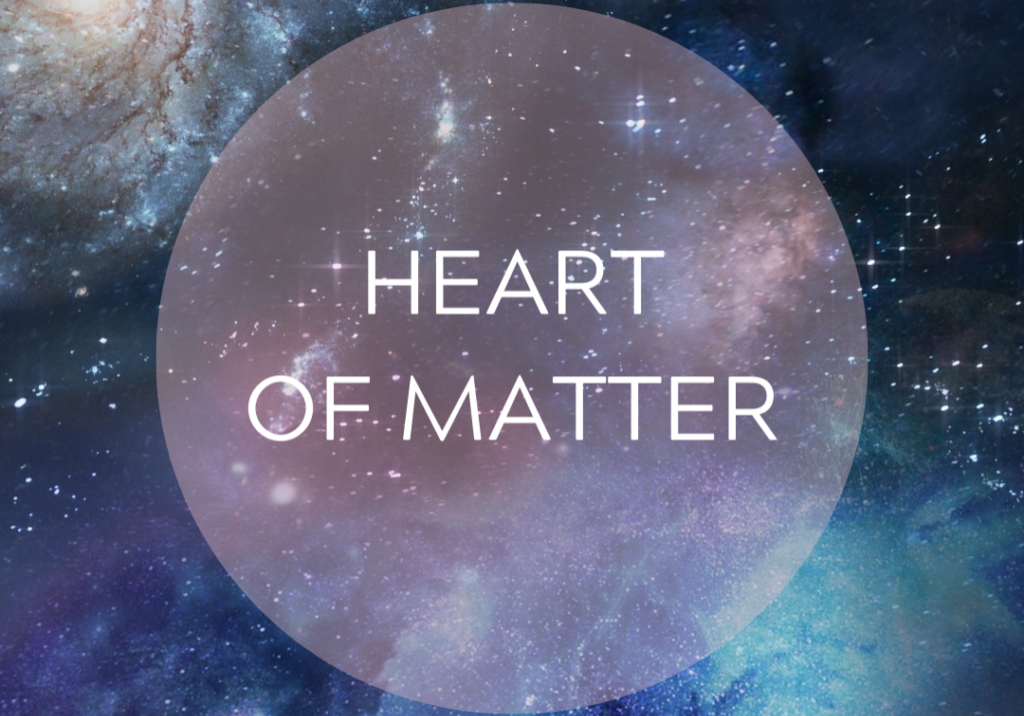Heart of Matter: “Preaching a Sky God”
July 2
“If religion is a cosmic and personal phenomenon and God symbolizes the interior depth of consciousness, then how do we still preach and teach a sky God?”
Ilia Delio, The Not-Yet God, Carl Jung, Pierre Teilhard de Chardin and the Relational Whole
2 de julio
“Si la religión es un fenómeno cósmico y personal y Dios simboliza la profundidad interior de la conciencia, entonces ¿cómo es que todavía predicamos y enseñamos a un Dios celeste?”
Ilia Delio, The Not-Yet God, Carl Jung, Pierre Teilhard de Chardin and the Relational Whole
What is being asked?
What is being moved?
 View print-friendly version
View print-friendly version
13 Comments
Related Posts

Heart of Matter: “The Divine Entanglement”
“While panentheism is a helpful concept, the language of pantheism and panentheism is based on concepts of ‘being’ and ‘nature’ that can lead to misguided images of distinct beings in…
In my humble opinion as a geneticist who believes in God and is not a theologian, I think that the relational myth will be a hope for the future. But, the truth, speaking from a scientific point of view, we have a more
pragmatic, that culture is the information capable of affecting the behavior of individuals, which they acquire from other individuals through the teaching of knowledge, beliefs, values, and other forms of social learning. There is a co-evolution between culture and human genome. In other words, beliefs are incorporated in our genome.
Bibliography: Laland KN, Odling-Smee J, Myles S. How culture shaped the human genome: bringing genetics and the human sciences together. Nat Rev Genet. 2010 Feb;11(2):137-48. doi: 10.1038/nrg2734. PMID: 20084.
It seems more effective to me to change the meaning of ancient myths. For example, the myth of Adam and Eve has been clarified. Scientifically, man derived from another primate.
Furthermore, if we read Genesis: “12 The man said, It was
the woman you gave me as a companion gave me fruit from the tree, and I ate.”
https://www.bibliaon.com/genesis. A clear obedience from man to woman.
The myth is therefore ridiculed.
I would greatly appreciate a theologian’s response to my comment. Thanks.
Very interesting comment. I think that Joseph Campbell described real ‘myth’ as akin to a cultural skeleton that impacts across cultures, races and time. Though the expressions vary they are roughly identifiable. It seems to me that there are also the cultural ‘stories’ that are adapted and adopted to express valid questions and experiences about life. These are often ‘set’ within a culture based upon the science of the time and the mind-set of the dominant culture or sect. Scientific advances might ‘de-bunk’ their foundation but not their imbedded cultural mind-set. This is particularly true when these primitive ‘answers’ satisfy biases and power structures and have been adopted by a dominant element of a culture as in organized religion and elevated, rationalized and ‘dogmatized’. The Papal Bulls of 1455 & ’93 are examples of how deep and significant ‘constructed myth’ can be. So too, I would suggest, is the exclusion and diminution of women. Joseph Ratzinger’s 2004, “Letter….on the collaboration of men and women in the church and in the world” is a prime example. The ‘domino’ consequences of ‘re-culturization’ are significant. It seems that scientific ‘debunking’ is insufficient, it requires real intellectual integrity and courage. For organized religions it is a real test of real faith.
I am immensely grateful for the response. But my aim was not to argue in favor of the reduction or exclusion of women. On the contrary, I transcribe the words of Enzo Bianchi “Get up, lift your head, stand up straight, and do not become a bent woman”, this is what Jesus said to the sick woman in the synagogue. This is what he ideally says to every woman. At all times and in all places.
In this book, the main role is given entirely to the women who crossed paths with Jesus. Let’s learn about the story of the sisters Mary and Martha, the story of Mary Magdalene, but also the story of the woman with uterine bleeding who has the courage to touch Jesus or the adulterous woman; how these women crossed paths with Jesus and what experiences and lessons can be learned from these encounters for our lives.
IN FACE OF THESE EXAMPLES, CAN THE CHURCH BE AFRAID OF WOMEN?
In: “Jesus and Women by Enzo Bianchi”